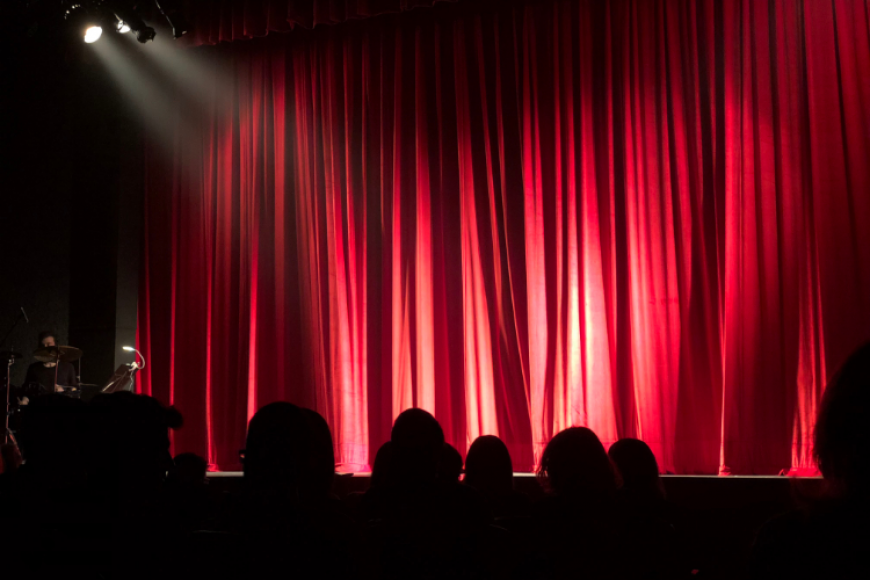Overcoming Performance Anxiety: Delivering Your Best Performance

Performing in front of an audience can be an intensely rewarding experience. So many hours of practice, so many weeks, and even months of dedication have gone into preparing the piece, that playing it in front of others can be exciting, exhilarating and profoundly enjoyable. However, oftentimes we as musicians are prevented from experiencing the joy of sharing music with others because of the performance anxiety that kicks in the moment we see the audience eagerly waiting to hear us.
Most musicians at some point in their journey have had to deal with a certain level of performance anxiety. No matter the years of experience or level of proficiency reached, appearing on stage in front of a crowd of strangers (or even in front of a group of friends) can be a daunting experience. All eyes and ears are on us, and we can feel vulnerable and exposed. For some musicians that anxiety is minimal, while for others it can be debilitating and paralyzing. It can make us lose the high level of playing we had attained in the practice room, cause us to make mistakes which we never made while practicing, and in the worst cases even cause our mind to go blank, feeling as though we forget how to play our instrument!
However, we do not have to let performance anxiety stop us from doing our very best in a performance! There are ways to combat it, and to deliver 100% of the playing level which we had in the practice room.
Over the course of my own musical journey I have struggled with performance anxiety. It used to be so bad that my hands would tremble and my heart rate would go up so high that I could hardly hold my flute. But eventually I figured out a way to manage it - if not completely eliminating the anxiety, at least minimizing it significantly.
My strategy for managing performance anxiety is a two-stage system. The first step is mental: changing our mindset, by developing intentional attitudes toward performing. The second step is physical: getting our body prepared for the challenges of performing.
The first stage takes place long before the upcoming performance, and involves mental conditioning and development of three basic attitudes towards performing.
1. We play our musical instrument for our own joy; we play it because we love to create beautiful sounds and play beautiful music.
When we play at home we (hopefully!) enjoy doing it, and the goal here is to bring this same attitude to our performances. If we believe with all our mental strength in this attitude of performing for our own pleasure and enjoyment, being fully present to the music we are playing and allowing ourselves to bask in enjoyment of the music, our anxiety will completely evaporate. Whether we are performing in front of 10 or 1000 people, if we focus our mind and emotions completely on enjoying the music, we will be able to effectively zone out any other thoughts and anxieties and miraculously deliver our best performance.
This attitude is very effective, but you need to start small. Don’t expect to immediately adopt this attitude when you are performing a concert in front of 300 people! Start first by performing for family and friends, then for some small community events, and gradually build up from there.
2. Realize that people did not come there to judge us.
They did not come to the concert with the intention of looking for mistakes or weaknesses in our playing, they did not come to laugh at us, nor did they come to criticize us. They came feeling grateful for the opportunity to enjoy live music performed for them. Moreover, the majority of the people sitting in the audience do not know the piece we are performing as well as we do, nor do they have such a well-developed ear as ours, so even if we make some small mistakes, likely most people in the audience won’t notice. Even if they do notice, they will quickly forget as they continue to enjoy the performance in the moment.
Try to adopt this attitude of sharing the joy of music with other people, and feeling happy for them that they get to enjoy your performance, and remembering that they are there to support you, not to criticize.
3. When we are up on stage, we are the best musician in the whole world!
There is nothing that can so quickly dispel our focus and inspiration during performance as the thought that there are countless other performers that can play much better than us. This immediately creates the mindset "so why should I even bother to try, when I can never play as well as...?" Though it may be true that there are musicians that can play the piece better than we can, during our performance there are none. During the concert we need to believe, and not just believe, but to know that we are the best musician alive, and that our rendition of the piece is the best in the world. If we adopt this attitude, it will give us confidence, and when we are confident we are much less likely to make mistakes.
The second stage of combatting performance anxiety begins the night before our performance, and involves certain practical steps to prepare our body to be in the best state for performance.
1. Get a good night’s rest.
Being well rested greatly improves our chances of performing well. It makes our mind more focused, and our body more flexible and strong. Follow whatever routine you need to be well rested - whether it’s drinking a calming tea, or reading before bed, or taking melatonin - prioritize rest.
2. Stay hydrated throughout the day.
If our body is dehydrated, our mind is not as sharp and we cannot focus well, which in turn affects our performance. This is especially important for singers and wind players.
3. Eat a good breakfast.
We need to have good energy for the performance, and we don’t want to be eating too much right before playing, as that can make us feel sluggish. Prioritize a good breakfast, try to include some healthy whole grains and protein, as well as some vitamin-filled fruits. Don’t just go for a pastry with coffee, as that will not give you long lasting energy.
4. Do some light exercise such as gentle yoga, stretching, or a relaxing walk.
This will relieve both physical and mental tension, while making your body more flexible.
5. Avoid practicing too much on the day of the performance; an hour is sufficient.
Do a good warm-up routine on your instrument, focusing on sound quality. Go through some of the difficult passages in your piece very slowly, paying attention to your fingers and tone quality. Most importantly, whatever you do, DO NOT play fast.
6. Give yourself plenty of time to get to the performance venue.
Arriving at the venue early will allow you to prepare yourself and your instrument and to focus on the mental attitudes mentioned above.
I hope this was helpful to you dear reader, and I very much hope that your next performance will be one not hindered by performance anxiety.
 |
ABOUT DIANA
Diana Desai received her Bachelor of Music (Flute Performance) training in "Saint-Petersburg Music College named after N. A. Rimsky-Korsakov", Russia--one of the best music colleges in the country. With 12 years of experience playing the flute, she started teaching 3 years ago, and specializes in teaching kids ages 5+. |
Diana's lessons are rated five stars in 30 verified student reviews, like this one:
Ms. Desai is a friendly and patient teacher and gives helpful, detailed feedback to our daughters. I would highly recommend her.
-Franklin Han, review from August 14, 2021




